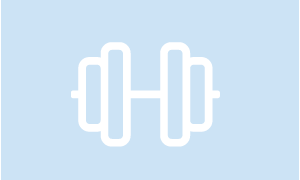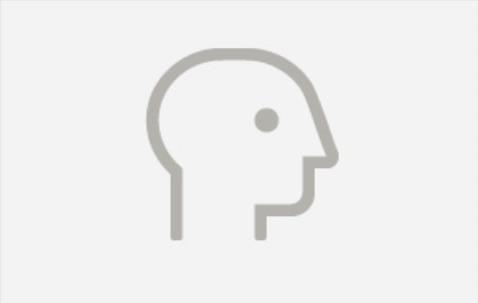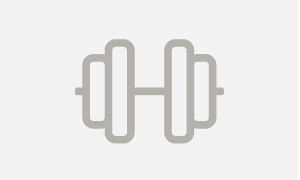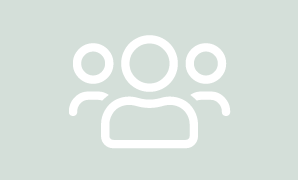Close
Student Health and Well-Being continues to provide services during the COVID-19 pandemic, albeit in adjusted formats to accommodate current public health guidelines and to serve a community that is more geographically dispersed than we usually are.
Who is served:
- Bloomberg School of Public Health
- Carey Business School
- Krieger School of Arts and Sciences
- Krieger School of Arts and Sciences - Advanced Academic Programs
- Peabody Institute
- School of Advanced International Studies
- School of Education
- School of Medicine
- School of Nursing
- Whiting School of Engineering
- Whiting School of Engineering - Engineering for Professionals
Close
The Hub provides frequent updates on the global COVID-19 outbreak, with particular focus on the Johns Hopkins community.
Who is served:
- Bloomberg School of Public Health
- Carey Business School
- Krieger School of Arts and Sciences
- Krieger School of Arts and Sciences - Advanced Academic Programs
- Peabody Institute
- School of Advanced International Studies
- School of Education
- School of Medicine
- School of Nursing
- Whiting School of Engineering
- Whiting School of Engineering - Engineering for Professionals
Close
Campus:
East Baltimore
University Health Services provides medical, mental health, and wellness services to students, residents, fellows, and trainees on the Johns Hopkins East Baltimore campus, which includes the School of Medicine, the Bloomberg School of Public Health, the School of Nursing, and the Berman Institute of Bioethics. University Health Services remains open to Hopkins students, post-doctoral fellows, house staff, and trainees. UHS is here to assist you with your health care needs during this time.
Here are some things to know about UHS current operations.
• Please call UHS and do not visit the clinic. UHS nurses screen all patients for COVID-19 before making an appointment or having you stop in.
• In most cases, for the safety of patients and staff, rather than have you visit the clinic in person, we plan to utilize telemedicine or phone visits as much as possible.
• If you have a fever or symptoms of a respiratory infection (cough, sore throat or shortness of breath), a UHS staffer will speak with you on the phone and may offer a telemedicine visit if available.
• For telemedicine services, UHS will be using Zoom. They are currently in the process of implementing this platform, and will post an update on their website.
• For in-person visits, you may notice that fewer staff in the office, and that visits may be spaced out. You may also notice rearranged waiting and staffing areas that promote social distancing.
• When you call the clinic, since many staffers may be working from home, you maybe be asked to leave a voicemail message. UHS staffers will be checking these messages and getting back to you promptly to assist with your concern.
• UHS will not be having in-person evening hours during this time.
• If you have symptoms and need COVID-19 testing, please call UHS during business hours to discuss whether you qualify for the testing and how to obtain it. Results may take 24-48 hours to come back and you will be asked to self-isolate as per CDC guidelines.
Who is served:
- Bloomberg School of Public Health
- School of Medicine
- School of Nursing
Close
Campus:
Homewood
The Student Health and Wellness Center provides high quality, confidential health care to eligible students of the Homewood and Peabody campus communities. Services offered include acute and chronic illness care, alcohol and other drug problem assessments; smoking cessation counseling, allergy injections, concerns about eating behaviors, weight and nutrition, immunizations, reproductive health care (contraceptives, confidential testing for sexually transmitted/HIV infections, emergency contraception), and specialist referrals when needed.
To Johns Hopkins students from the Homewood and Peabody campuses who use SHWC services, the center remains open and is here to assist you with your healthcare needs. A few things to know about SHWC operations during the COVID-19 pandemic are:
• Student Health and Wellness can be reached by calling 410-516-8270.
• Online scheduling has been temporarily disabled.
• When the clinic is closed you will be connected with the nurse advice line by calling the main number.
• Please call rather than come in, so that initial guidance can be provided by phone. SWHC staff will screen all patients for COVID-19 before making an appointment or having you stop in.
• In most cases, for the safety of patients and staff, rather than visiting the clinic in person, the SHWC plans to utilize telemedicine or phone visits as much as possible.
• If an in-person visit is medically necessary, please avoid bringing family and friends.
• For telemedicine services, the SWHC will be using Zoom. They are currently in the process of implementing this platform, and will post an update on their website.
• For in-person visits, you may notice that fewer staff in the office and that visits may be spaced out. You may also notice that rearranged waiting and staffing areas that promote social distancing.
• There will be no in-person evening or Saturday hours during this time.
• If you have symptoms (e.g. fever and shortness of breath) and need COVID-19 testing, please call the SHWC during business hours to discuss whether you qualify for the testing and how to obtain it.
• Results may take 24-48 hours to come back and you will be asked to self-isolate as per CDC guidelines.
• If you plan to leave campus, consider contacting the SWHC to refill your prescriptions. If the medication is not a controlled substance, we will be able to prescribe it in any state.
• You can also find resources and updated information on the university’s operations and response on the Hub COVID-19 Information Page.
Who is served:
- Krieger School of Arts and Sciences
- Peabody Institute
- Whiting School of Engineering
Close
This website is designed to connect people with services and information related to all aspects of accessibility. As of Monday March 26, 2020 all Student Disability Services (SDS, DSS or DS) offices will be operating during usual business hours, and some will be moving to fully remote operations. Please review all pertinent details below, watch for emails from SDS, and check local disability services websites for your school for more specific timelines and updates.
Here are some things to know about Student Disability Services’ current operations.
SDS Homewood Office: Hours, Staffing, Appointments
Student Disability Services Homewood will be moving to fully remote operations as of Tuesday March 17, 2020.
• The best way to reach SDS Homewood will be by emailing studentdisabilityservices@jhu.edu
• Starting Tuesday 3/17 the SDS phone, 410-516-4720, will be taking messages and staff will be checking it on the hour during business hours from 8:30 am to 5 pm, Monday through Friday.
• Appointments will be available by Zoom or phone and can be scheduled during business hours.
• Even if you remain on campus, you are encouraged to use remote options.
• If an urgent need arises that may require direct interaction with the SDS Homewood office, please contact the office by both email and phone. A staff member will be available to come in to the office if the resolution of your concern cannot be done remotely.
Disability accommodations and services for schools moving to remote classes
SDS is continuing to work with students already registered to ensure that the transition to remote classes will be effective. This process will involve many changes in a short amount of time and there are some things you can do to make sure your needs are addressed:
o Reach out to your faculty members to learn about how your courses will be delivered as well as how accommodations will work. Faculty may elect to use different delivery methods and formats so it will be important to know these details as soon as possible.
o Some accommodations may not be delivered in the same way in a remote setting, and it will be important to contact your faculty to get guidance from them about how things will work for a given course.
o Contact SDS with any questions or concerns as soon as possible. SDS is available to support you and your faculty with this transition.
o SDS has been collaborating with instructional design staff in providing guidance around accommodations to those assisting with setting up the remote courses as well as to all faculty who currently have students using accommodations.
o With the move to remote course delivery, there may be a learning curve for new technologies as well as potential new challenges in delivering accommodations. Please reach out to SDS to talk things through, report problems, and let them know if you need additional accommodations or support.
New Accommodation Requests
Students may discover that accommodations are needed for the first time due to the change to remote classes. Please contact the SDS coordinator for your school to get started with the SDS registration process. Many aspects of the process are already online, and meetings to discuss your needs, explain how things work, and finalize accommodations will happen remotely.
Students remaining in the residence halls on campus (Homewood and Peabody)
Please let SDS know you are here so that we can continue to communicate with you about any updates or changes that may impact you in a particular way. SDS services will be delivered remotely including exam accommodations for all remote classes; this is to reduce contact and also provide consistency in the way we deliver accommodations.
If you need additional support during this time, please do not hesitate to reach out so that SDS can assist you in sorting out any disability related concerns and connecting to appropriate local resources.
Who is served:
- Bloomberg School of Public Health
- Carey Business School
- Krieger School of Arts and Sciences
- Krieger School of Arts and Sciences - Advanced Academic Programs
- Peabody Institute
- School of Advanced International Studies
- School of Education
- School of Medicine
- School of Nursing
- Whiting School of Engineering
- Whiting School of Engineering - Engineering for Professionals
Close
Reduce anxiety, sleep better, and feel happier with free access to Calm’s library of mindfulness programs.
Who is served:
- Bloomberg School of Public Health
- Carey Business School
- Krieger School of Arts and Sciences
- Krieger School of Arts and Sciences - Advanced Academic Programs
- Peabody Institute
- School of Advanced International Studies
- School of Education
- School of Medicine
- School of Nursing
- Whiting School of Engineering
- Whiting School of Engineering - Engineering for Professionals
Close
Campus:
East Baltimore
Sign up for a weekly newsletter with advice, tips, and events related to the East Baltimore campus.
Who is served:
- Bloomberg School of Public Health
- School of Medicine
- School of Nursing
Close
This list of resources for SOM students includes mental health and substance use support and resources for life challenges and emotional well-being.
Who is served:
- School of Medicine
Close
Campus:
Peabody Institute
The online curriculum Playing Well introduces a range of occupational health issues specific to the needs of instrumental musicians and provides practical, scientifically grounded approaches to peak performance. It covers topics including anatomy and principles of movement; common performance-related injuries and their treatments; rehabilitation and prevention strategies; and mental fitness and peak performance.
Who is served:
- Bloomberg School of Public Health
- Carey Business School
- Krieger School of Arts and Sciences
- Krieger School of Arts and Sciences - Advanced Academic Programs
- Peabody Institute
- School of Advanced International Studies
- School of Education
- School of Medicine
- School of Nursing
- Whiting School of Engineering
- Whiting School of Engineering - Engineering for Professionals
Close
Campus:
Peabody Institute
The artist-centered approach consists of a series of presentations and interactive workshops required for all incoming undergraduate and graduate students designed to enhance mental and physical health, maximize effectiveness in practice and daily living to achieve peak performance, and recognize and manage injuries if they occur.
Who is served:
- Peabody Institute
Close
Campus:
Peabody Institute
In collaboration with the Johns Hopkins Ear, Nose & Throat and Physical Medicine & Rehabilitation departments, all incoming undergraduate and graduate dancers, instrumentalists, and singers are provided with voluntary baseline occupational health screenings at no cost. Participants receive a set of recommendations and educational materials on playing- or singing-related health and referrals for consultation, as needed. All screening results are confidential and are shared with the participant only. Screenings are intended to identify potential issues early in the course of academic study to provide a pathway to further assessment and care when indicated.
Who is served:
- Peabody Institute
Close
Campus:
Peabody Institute
The JHRN Clinic for Performing Artists offers specialized services for performing artists experiencing pain or injury including physical therapy, occupational therapy, and hand therapy. The clinic is located at and primarily serves the Peabody campus, but is open to any Johns Hopkins student who is experiencing physical pain related to artistic performance.
Who is served:
- Bloomberg School of Public Health
- Carey Business School
- Krieger School of Arts and Sciences
- Krieger School of Arts and Sciences - Advanced Academic Programs
- Peabody Institute
- School of Advanced International Studies
- School of Education
- School of Medicine
- School of Nursing
- Whiting School of Engineering
- Whiting School of Engineering - Engineering for Professionals
Close
Campus:
East Baltimore
SOURCE is the community engagement and service-learning center for the Johns Hopkins University (JHU) Schools of Public Health, Nursing, and Medicine. The organizations engages Hopkins students and Baltimore communities in mutually beneficial partnerships that promote health and social justice.
Who is served:
- Bloomberg School of Public Health
- School of Medicine
- School of Nursing
Close
Campus:
Peabody Institute
The Office of Student Affairs helps with questions about residence life, off-campus housing, health and counseling services, the Peabody Health and Wellness Center, services for international students, student activities, disability resources, the Hopkins connection, and Baltimore resources.
Who is served:
- Peabody Institute
Close
This list of resources enumerates Hopkins entities that can provide confidential help and support in cases of sexual harassment, sexual assault, relationship violence, and stalking (collectively referred to as sexual misconduct), discrimination and/or harassment based on a protected category, and related retaliation. None of these resources require involvement by the Office of Institutional Equity.
Who is served:
- Bloomberg School of Public Health
- Carey Business School
- Krieger School of Arts and Sciences
- Krieger School of Arts and Sciences - Advanced Academic Programs
- Peabody Institute
- School of Advanced International Studies
- School of Education
- School of Medicine
- School of Nursing
- Whiting School of Engineering
- Whiting School of Engineering - Engineering for Professionals
Close
Campus:
Homewood
F45 is a functional 45-minute circuit-based workout in a high tech, high energy, team environment. Every day is a new workout. Cardio is the focus on Mondays, Wednesdays & Fridays. Strength is the focus on Tuesdays & Thursdays. Fuse the two on Saturday for the 60-minute Hollywood workout. Johns Hopkins is one of few universities in the country with F45 and the first school on the East Coast.
Who is served:
- Bloomberg School of Public Health
- Carey Business School
- Krieger School of Arts and Sciences
- Krieger School of Arts and Sciences - Advanced Academic Programs
- Peabody Institute
- School of Advanced International Studies
- School of Education
- School of Medicine
- School of Nursing
- Whiting School of Engineering
- Whiting School of Engineering - Engineering for Professionals
Close
The Bloomberg School of Public Health offers services and resources to create and maintain an environment focused on student well-being and diversity.
Who is served:
- Bloomberg School of Public Health
Close
The Office of Student Affairs at the School of Nursing can assist in all matters pertaining to student life, including orientation, graduation, career services, student development and leadership, health care services, lockers, counseling, housing, parking, security, and student activities.
Who is served:
- School of Nursing
Close
Campus:
Washington, DC
Advanced Academic Programs provides a variety of academic, technology, classroom, and student services.
Who is served:
- Krieger School of Arts and Sciences - Advanced Academic Programs
Close
As an online or part-time student at Johns Hopkins Engineering, you’ll have the resources you need to succeed both in and out of the classroom, including career planning and webinars, social networking, writing workshops, and wellness services.
Who is served:
- Whiting School of Engineering - Engineering for Professionals
Close
The Johns Hopkins University is committed to providing a safe and non-discriminatory educational and working environment for its students, trainees, faculty, staff, post-doctoral fellows, residents, and other members of the University community. In particular, the University will not tolerate and is committed to providing members of its community with an environment that is free from sexual harassment, sexual assault, relationship violence, and stalking (collectively, “sexual misconduct”).
Who is served:
- Bloomberg School of Public Health
- Carey Business School
- Krieger School of Arts and Sciences
- Krieger School of Arts and Sciences - Advanced Academic Programs
- Peabody Institute
- School of Advanced International Studies
- School of Education
- School of Medicine
- School of Nursing
- Whiting School of Engineering
- Whiting School of Engineering - Engineering for Professionals










